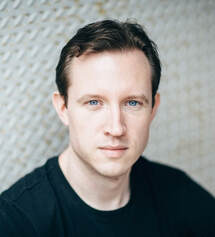EXPLORING POLISH ART SONG
Dr. Michael Pecak, conductor and keyboardist
WORKSHOP MASTER CLASS BROADCAST
JANUARY 29, 2021
7:00pm Central
on our Broadcast page or Facebook Live
Following the premiere broadcast, this master class will remain available online for on-demand streaming through the evening of January 31, 2021.
JANUARY 29, 2021
7:00pm Central
on our Broadcast page or Facebook Live
Following the premiere broadcast, this master class will remain available online for on-demand streaming through the evening of January 31, 2021.
|
OVERVIEW
|
During a century-and-a-half of official nonexistence, partition, censorship, and political strife, the preservation of a distinctly Polish national identity became the consuming project of artists and the intelligentsia. Despite enforced “Germanization” and “Russification”, the Polish language itself became both a means and an end for expressions of nationhood. Through their language, disenfranchised Poles recalled their past, communicated their hopes for independence, and ensured national cohesion. Polish poets homed in on these sentiments, and Polish composers heightened them through music, giving rise to a substantial body of art song, which remains part of the standard vocal repertoire of Poland to this day.
This three-part series begins with an overview of the historical and cultural contexts of Polish art song, key composers of the 19th to 21st centuries, and the unique characteristics of the Polish language and its lyric diction. Part two of the series offers singers and pianists the opportunity to refine their language and diction skills, through individual coachings with keyboardist, conductor, and scholar Michael Pecak. The series culminates in a master class for select singers and pianists, led by Dr. Pecak. |
|
SCHEDULE
|
PART I: November 7, 2020
ONLINE LECTURE Live via Zoom 5:00-8:00 PM A NATION'S VOICE: Poland through its Language, Poetry, and Songs I. Historical and cultural contexts: 19th-20th century art song II. Key composers: from Josef Elsner to Marta Ptaszyńska III. Lyric diction: effective strategies for navigating the Polish language’s dense consonant clusters and complex prosody with confidence, conviction, and style. Each lecture segment is approximately 45-minutes in length, followed by a brief Q&A. Free and open to all. No music or language experience necessary. This lecture will be available for on-demand streaming through November 9. PART II: December 7-12, 2020 by appointment INDIVIDUAL LANGUAGE COACHINGS FOR SINGERS AND PIANISTS Join Dr. Michael Pecak, via Zoom, for individual language coachings. Coachings are 55-minutes in length. Singers and pianists may sign up individually or as singer-pianist pairs. PART III: January 16, 2021 11:00 AM-3:00 PM MASTER CLASS FOR SINGERS AND PIANISTS Five singer/pianist teams (or up to five individual singers) will be chosen to participate in this masterclass with Dr. Michael Pecak, which will be recorded live for later broadcast as part of CAIC’s 2020-2021 programming. Repertoire will be assigned in advance, and a pianist will be provided as needed. Due to COVID-19 travel restrictions, this event is limited to Chicago-based musicians only. |
APPLICATION
|
Master Class for Singers and Pianists
Deadline: November 23
Individual Coaching only Deadline: November 23
Applications should be sent to: [email protected] | ATTN: Polish Song |
|
REGISTRATION FEES
|
Master Class for Singers and Pianists
$200, all inclusive (lecture, individual coaching, master class) Individual Coachings ONLY $75 per session Lecture FREE |
DR. MICHAEL PECAK,
|
A former Fulbright Fellowship recipient, Chicago-based Polish-American conductor and keyboardist Michael Pecak studied the music of 20th and 21st century composers at the F. Chopin University of Music in Warsaw, and was an Artist-in-Residence at the Polish Studies Center of Indiana University. He holds the Doctor of Musical Arts from McGill University, where his dissertation focused on Polish prosody, musical text settings, and historical performance practices.
|
all performance and master class photography by Elliot Mandel
